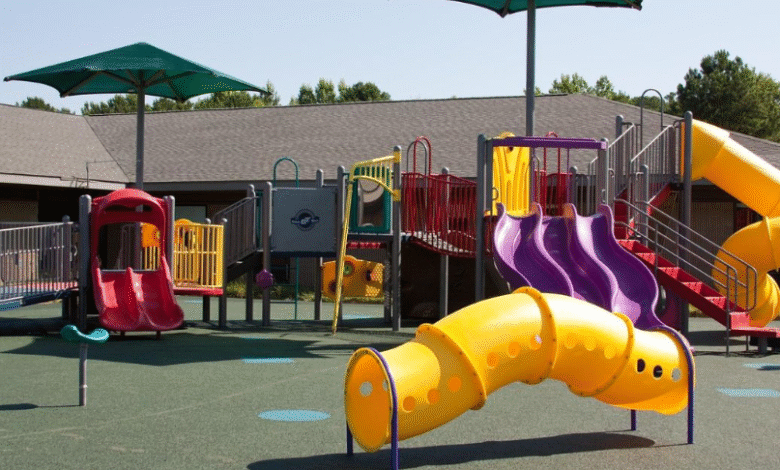What Parents and Students Look For in After-School Activities

After school activities are not just “something to do” after the bell rings—they are mini adventures where children learn, grow, and discover who they are. Parents are increasingly searching for programs that do more than just occupy time; they want after school activities that teach, inspire, and nurture. From building confidence to learning how to work with others, these activities give children the tools they need to thrive both inside and outside the classroom.
The right programme can spark curiosity, foster friendships, and even reveal talents you never knew your child had. With so many options available, it’s important to understand what makes an activity truly valuable.
Benefits
After school activities provide a lot more than just a way to keep your child occupied. In the right hands, such programmes can guide a child through learning experiences that resonate a lifetime.
- Social and Emotional Growth: Kids learn empathy, self-awareness, and problem-solving by interacting with peers in structured settings.
- Academic and Personal Development: From homework clubs to creative workshops, children gain confidence in their abilities and explore new passions.
Additional advantages are boosted wellbeing, collaboration, and a chance to experiment with fresh activities. These programmes also offer a child-safe/supportive environment for working families, so that whilst parents get on with their day, children are being cared for.
Inclusive Activities and Equality
After school activities have come a long way since the days of giggling while playing tag– they are now so much more than just kid play, but a way to teach our littlest humans important life lessons. A lot of parents seek out anti-racist educational equity activities. These programmes taught the children the importance of fairness, learning to appreciate differences among us, and how to inspire the mindset of a global citizen.
Now picture a classroom: children talking about the significance of a cultural tradition, collaborating in a group project or learning about the stories of historical figures from all walks of life. Through these experiences, children learn to embrace adversity and gain insight into why inclusion is a necessity, nurturing them into socially aware and compassionate adults.
Celebrating Culture and Creativity
Diversity is not only a teaching — it is an experience. Culture-based after-school activities such as music, dance and art other than literature, will enrich their view of the world. Black culture clubs, multicultural story times and arts and crafts programming provide a safe space for children to embrace diversity, but they also put up constructive advertisements allowing children to play with different perspectives.
Doing so gives children an opportunity to not only learn about others but grow as individuals, gain confidence; make friends and develop as individuals and learn to be proud of who they are.
Types of After School Activities
Extracurricular activities look different for everyone. The right type is dependent on a child’s age, interests, and personality.
Educational clubs: Book groups, science experiments, maths puzzles or provision of homework advances
Sports: Football, swimming, martial arts, dance or team games.
Arts and Creativity: Workshops for drawing, painting, drama, music and performance.
Particular Interests — Coding, robotics, debate, chess, or environmental clubs.
Community and Leadership: Volunteer work and social projects that teach responsibility.
Older children may enjoy career-prep clubs or work-based learning opportunities, while younger children thrive in hands-on creative and play-based programmes.
Choosing the Right Programme
A perfect after-school activity is finding the child and the right environment where the two suit perfectly. Parents should consider:
- What the child enjoys or is most interested in.
- Practical considerations such as location, timing, cost, and supervision.
The objective is a program that provides challenge without being overstimulating and that promotes growth without being a stressor. Well, if children are also engaged, confident and happy, then it is a double benefit.
Supporting Students and Families
After-school activities also help families. These safe, professional programmes make it easier for parents to work in peace and comfort, knowing that their child is also partaking in constructive, learning activities. And while easing the dislodged burden of fear that families will always have to think about these activities also give children some confidence, how to practice cooperation with fellow friends, and find new interests done, safely and conveniently.
Creating a Positive School Environment
Schools have an important role in creating positive components of after-school time. The best programmes are:
- Fit for all children and children of all abilities.
- Created to inspire imagination, individuality, and interaction.
- Facilitated by agency staff or parents, with (other) community partners, to result in exceptional experiences.
When children feel valued, they are more likely to play regularly and gain long-term benefits.
Streamlining After-School Activities
Although managing after-school programmes can be tough, with the help of tools like Pikmykid, the job becomes easy for school administrators and parents. Signup, attendance, and communication can be simplified, providing children the greatest benefit from their activity without logistical nightmares.
Explore More Opportunities
And the great thing about After school activities is the diversity. Introduce kids to new experiences, uncover latent skills, and forge friendships with others who are also pursuing their interests. Parents can check newsletters, social media/current school communications to find current programmes.
To open the heart, mind, and spirit, try something you have at least never done each term.
Find programmes that combine learning with fun because children also need an avenue to experience a sense of achievement.
Conclusion
After school activities are not just extra-curricular—they are essential experiences that shape a child’s development. They help children learn, grow, and thrive in a safe, engaging, and inclusive environment. By selecting programmes that promote learning, inclusivity, and creativity, parents can ensure their children gain confidence, build meaningful friendships, and explore new passions.
When after-school activities combine fun with growth, children don’t just fill their afternoons—they shape their future.



